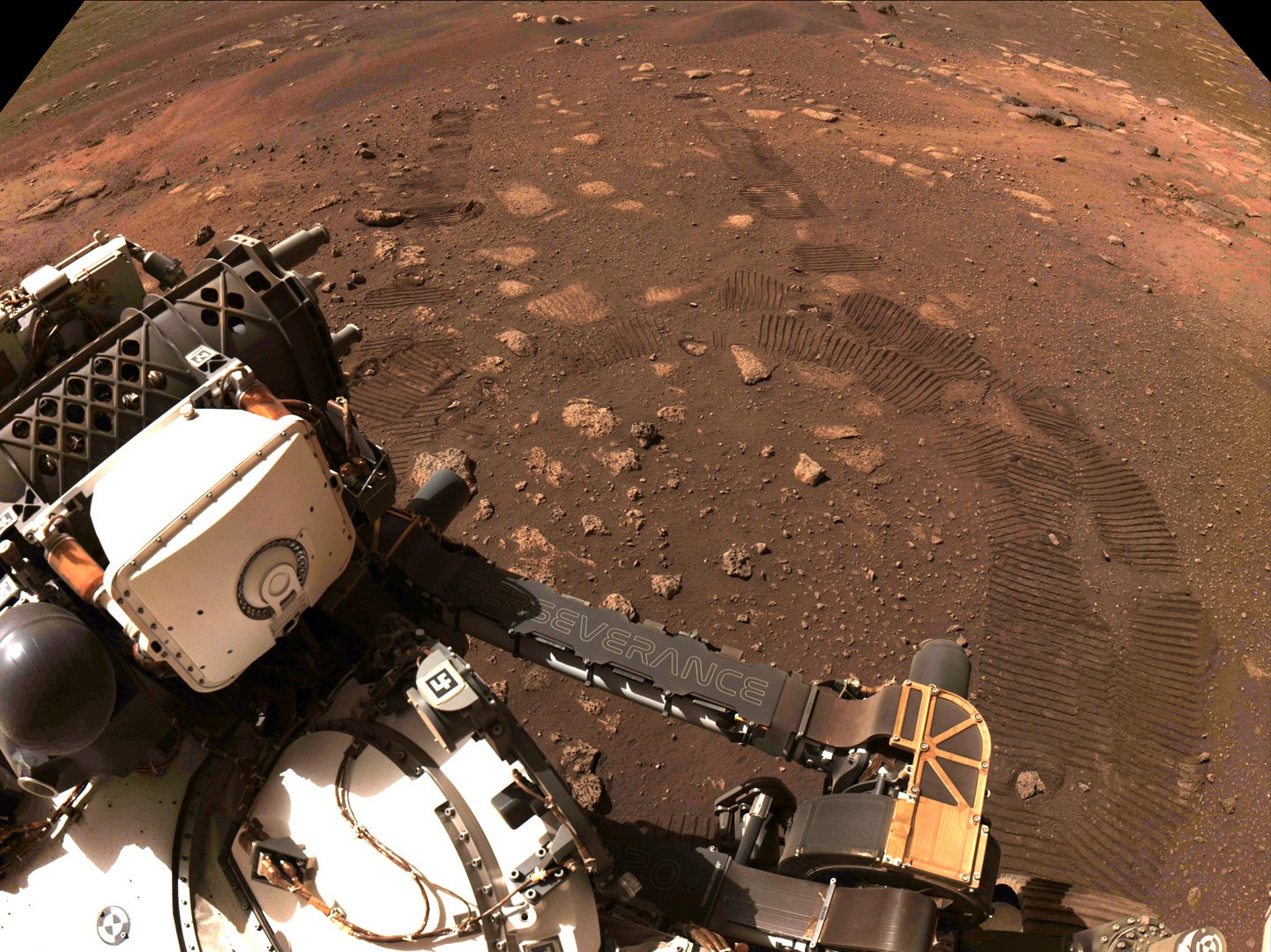NASA's new Mars rover hits dusty red road, 1st trip 21 feet
NASA's newest Mars rover has hit the dusty red road, taking a spin for the first time this week

NASA’s newest Mars rover hit the dusty red road this week, putting 21 feet on the odometer in its first test drive.
The Perseverance rover ventured from its landing position Thursday, two weeks after landing on the red planet to seek signs of past life.
The roundabout, back and forth drive lasted just 33 minutes and went so well that the six-wheeled rover was back on the move Friday.
During a news conference Friday, NASA's Jet Propulsion Laboratory in Pasadena California shared photos of the tire tracks over and around small rocks.
“I don't think I've ever been happier to see wheel tracks and I've seen a lot of them, said engineer Anais Zarafian. ”This is just a huge milestone for the mission."
As soon as the system checks on Perseverance are complete, the rover will head for an ancient river delta to collect rocks for return to Earth a decade from now. Scientists are debating whether to take the smoother route to get to the nearby delta or a possibly tougher way with intriguing remnants from that once-watery time 3 billion to 4 billion years ago.
___
The Associated Press Health and Science Department receives support from the Howard Hughes Medical Institute’s Department of Science Education. The AP is solely responsible for all content.
Bookmark popover
Removed from bookmarks